Detroit: Become Human
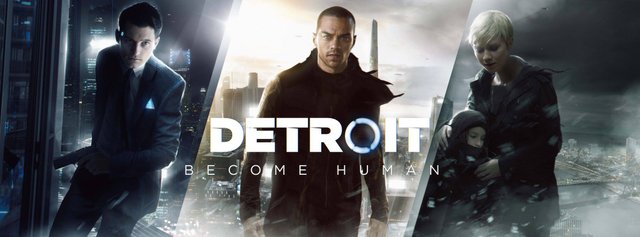 Oh androids, wow androids. Why do we take these robots and shoot them? More precisely, do not you think we're going to shoot them 20-25 years later? Whenever I see a humanoid robot that can talk in the news, the first thing that comes to my mind is, 'Let's see what kind of difficulties humans have in this life.' Because, let's face it, this work will reach the robots that can feel the end, be in love, cry and rejoice. Mankind will also give their weaknesses to their new forms of life that they will create from their own image. So I say that eventually these robots will be watching Boston Dynamics videos! Then why did SkyNet ... But there's a little more to it, come before him, let's take a look at Detroit: Become Human, which is already out of the blue.
Oh androids, wow androids. Why do we take these robots and shoot them? More precisely, do not you think we're going to shoot them 20-25 years later? Whenever I see a humanoid robot that can talk in the news, the first thing that comes to my mind is, 'Let's see what kind of difficulties humans have in this life.' Because, let's face it, this work will reach the robots that can feel the end, be in love, cry and rejoice. Mankind will also give their weaknesses to their new forms of life that they will create from their own image. So I say that eventually these robots will be watching Boston Dynamics videos! Then why did SkyNet ... But there's a little more to it, come before him, let's take a look at Detroit: Become Human, which is already out of the blue.
Like every successful fantasy and sci-fi work, Detroit: Become Human receives real life support on offer. The main theme of the game is that of 1954, which appeared in the U.S. It is similar to the 'Afroamerican Civil Rights Movement' led by Martin Luther King. This main theme supports problems such as 'domestic violence' and 'gender inequality' which continue to spread societies like a plague today. Film and literature lovers are no stranger to the processing of such heavy topics. But games, apart from some independent productions, prefer not to touch too much the sociocultural effects that have been felt for centuries or are still going on nowadays. But Quantic Dream is what they want to say and want to do with Detroit: Become Human, the kind of person who wants critical thinking from the players.Although Detroit is essentially a 'Quantic Dream' game, it has become a cinsten that reflects on the issues that society is experiencing today. Why is the android model in Detroit port duty and heavy duty black? Or why is the model working as a lifeguard a white woman sitting 'in full' of today's beauty standards? To think that these are coincidences would be insulting Detroit's intellect. Let's not disturb the kon-u, we'll get in on it later. Let's take a look at Detroit's game first. When you see Quantic Dream on the cover of a game, a default template is already in your head for you to expect from that game. The story and sub-stories that are branched out, the chaos that arises from the flow and action that occurs when the interactive scenes that are full of 15-20 minutes come together and the calm moments are mixed in the mixer.Detroit is presenting exactly to the players on the premise of three different masters. In the near future, the main characters in the U.S. Detroit city are Connor, Kara and Markus. Three are the android models with their own characteristics. Connor, a police detective model created by the CyberLife company who worries about my androids. Kara and Markus, which are sold in stores, are two other models that help people in their home business. Land is designed for families who want 'nanny' for their younger children.
(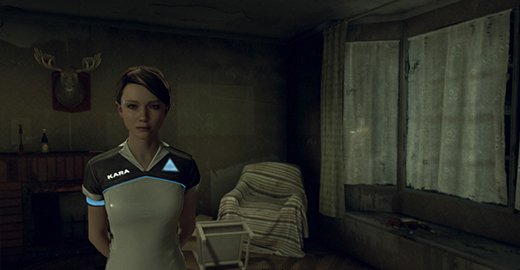 )
)
The game tells three different, but influential stories that go and go between these characters. Just like in his previous games, the flow of Detroit is also divided into short scenes. The most important feature of the game is in these short scenes; you are reaching different ends according to the decisions you made in both that and the preceding scenes. The choices you make in the scenes can also affect later parts of the game, and sometimes even other characters. I would like to give a lot of examples about this situation, but since the game is the story of the whole thing, all of the striking examples are full of spoilers. Therefore, at the same time we play in the demos of the game, the first part I talk about. In this episode we played with Conor, we see the source of the game's main conflict.Due to a situation unknown in Detroit; Some of the humanoid android robots that were produced to be polite, "helpful," but literally "slaves", have been "contrary" to their software. One of these androids, which normally would have to fulfill the owners' orders unquestioningly, killed the father of the servant family and kidnapped her little girl. Even though the private team squashed the house and its surroundings, the android's little girl hostage in the roof of the house makes the police job harder. That's where Connor comes in. Conor, sent by CyberLife to help authorities in police and detective missions, acts as a hostage mediator in this case. Task; to investigate the situation, rescue the girl, and bring the android back to CyberLife for review. Before you go out on the balcony and talk to the android, you need to understand the situation first.When you enter the little girl's room, you learn the name of the android with the video on the table, using Connor's analytical ability, you understand that her father gave a new android model order just by wrapping the shot back and forth. But on the one hand, while you are searching every corner of the house for the match, the outside android are starting to stretch because of the special team police who are all around you and a policeman is hurt. What is this? There is a police weapon under the table next to the scene, which intervenes first and is shot dead. Android is forbidden to use weapons, but should we do it. 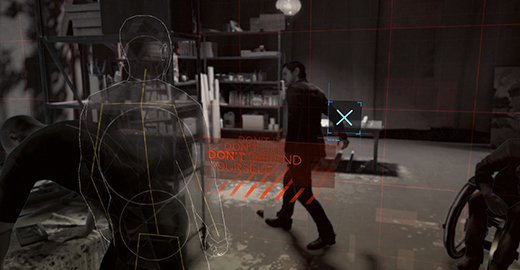
Every tip you find in this little house, and the decision you make, will try to persuade you android at the end of the episode, giving you extra custom dialogue and action options. Ultimately, depending on whether you are in the house or talking to the android, you can end up with a different end. You're saving the girl on one, the one and the girl are jumping down, you're convincing the android to let the girl go, but the sharp shooters are hurting. Now imagine that you have added 15-20 minute scenes like this to this section and you connect each other. Here's Detroit: Becoma Human. You see a streaming schematic of each of the scenarios, created at the end of the selection and you have not done yet. For example, it is not a bad idea to see that you can use the weapon you did not buy in section X in section Y.But here we face a problem that I can not solve with any micro-election-oriented game, including Quantic Dream, which I call 'the paradox of choice'. Yes, Detroit is technically a playable game.
When I first played, I finished the game in 9.5 hours, then I turned back and played from the beginning. If you want to see everything in the game, I think you can spend over 30 hours with Detroit. But here the problem is, to see other options, you have to play the game very differently than you would normally play. The most enjoyable aspect of such games is that you have to solve the problems that you face in an instant and precisely. I played Detroit in accordance with his political and ethical views, and I made decisions accordingly. The decision to go back to the game and give it just to see other ways, and not in essence "my", is to throw away all the meta-narration of the game. I can not talk about being a Spoiler but you are making a very important choice with a character in the middle of the game and this choice affects both the rest of the game and other characters. I made that choice according to your opinions and moral haze, because that's what you want from the game.I played the game again and went back to that scene to make another choice. Because business is no longer the tension that Detroit offers, the sudden decisions I make without knowing the end result; 'Let' s see how it 's evolved. This is a situation that completely eliminates the effect that games like Detroit created in the first game. Now you can say to me, 'You think Utku is very detailed yet, you do it in your heart', but as I mentioned at the beginning of the article, this is what Detroit wants from the players. You do not want to wrap up your registry and fix an error you're making. What Detroit is asking is that you transfer some of it from yourself to the minds of some of the characters in the game. In the end, the characters are 'you'. This subjectivity and the weight of the election leaves its place in the ordinary game story flow after the first game.This is not a problem in particular for Detroit, as I said, none of the similar games have solved this.
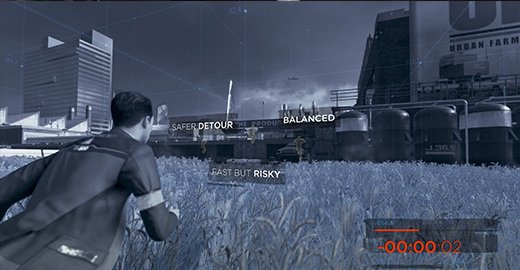
Connor, who is in support of the Detroit Police Department, finds your mission, where these 'contradictory' androids come from, because he's a complete 'company man'. The two other characters of the game, Kara and Markus, draw their own destiny. Markus's story goes as far as to secure the androids' place in society, while Kara has a far more personal story. My favorite was markus Markus. After an incident that happened in the first part of the game, he finds himself in a very strange place, far from the 'good' life he lived in isolation, and he has to carry the fate of the androids on his back. Unfortunately, the game is the most empty story, Kara's. Unfortunately I say because the actor Valorie Curry who plays Kara has done a great job but you have to see a few more scenes than an ordinary high school play because the dialogue and story material is so bad.Although the stages of the three characters are separated from each other in some respects, they function in the same way as the game cycle. The scene opens, you travel with the character's environment before the action or big dialogue scene begins, you talk briefly with the other characters, you drift right and left, and you move forward. Usually the tempo is low except for a couple of intense scenes that leave a mark on me, finish the game, and come to mind when writing this review. But when I wanted to meet me, it was a very successful game. Nevertheless, this is the biggest contributor, the game's terrible controls. Yes, it's no fun to turn four of the Quantic Dreams into a control scheme, but in a scene where timing is important, besides the objen that has to pick up the characters that act like logs, just to get the interaction button.
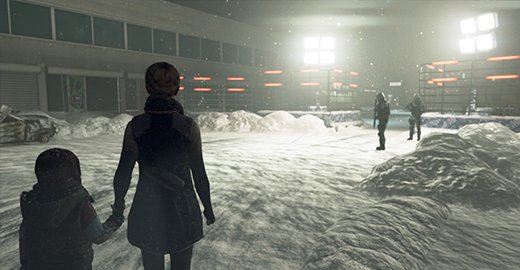
Detroit now offers an extraordinary visual feast as we are accustomed to in Sony first party games. The game looks great on the PS4 Pro, especially if you have the chance to recommend it to the console. I finished the game on the PS4 Slim, but I also had a chance to look at Pro. Unfortunately, the original PS4 is showing its age. The Pro has a 2160p resolution, but the sharpest images are a bit blurry on the original PS4. But it was art design that impressed me more than pure graphics quality. Naturally, these scenes had to be pulled into the playground in the sense of the atmosphere because the game was created by the gathering of their own scenes and was a small object to be examined, touched and looked at in every scene. Detroit does it expertly. From the damp walls of a house in a neighborhood where working class people live; Every detail in the carpet is processed to the finest detail, until CyberLife's luxurious self-contained house in the snow, where senior executives live.This level of detail is also seen in the characters in the game. The details in the eyes of both the head and the side characters, the little facial expressions and more are absolutely magnificent. Detroit: Become Human is neither a good game to change the game world and the sub-type it works on, nor a bad game to be a footnote in the world of the game world. If you want a sensational and action-packed adventure with at least 10 hours of high-quality production, you can play Detroit with peace of mind. Do not just expect to produce detailed, logical results for your own problems.
Pluses: The visuals and art design are great. The created world is quite convincing. He fingers on thought-provoking issues. If you liked Heavy Rain and Beyond, you would also like it. It's a story that's stuck. Turkish subtitle support. Cons: Detroit wants to say something, but the words in the mouth are a bunch of jumbled words. Kara's story is terrible. Dialogue quality does not remove the emotional burden of the scenes. Replayability is high, but as I said, the decisions you make are very contrary to the game concept. Suddenly the game ends suddenly. NOTE: 7 Final Decision: If you like the game mechanics of Quantic Dream, you'll find what you're looking for in Detroit, but David Cage's latest game does not pass the class in storytelling.
✅ @aycaacar, I gave you an upvote on your post! Please give me a follow and I will give you a follow in return and possible future votes!
Thank you in advance!